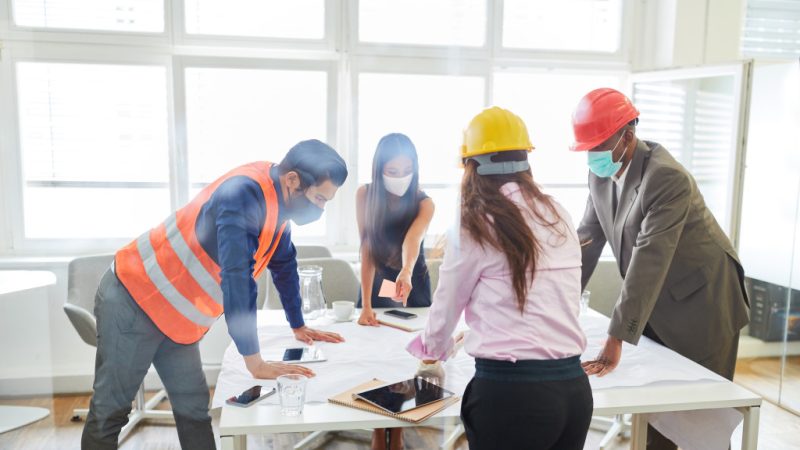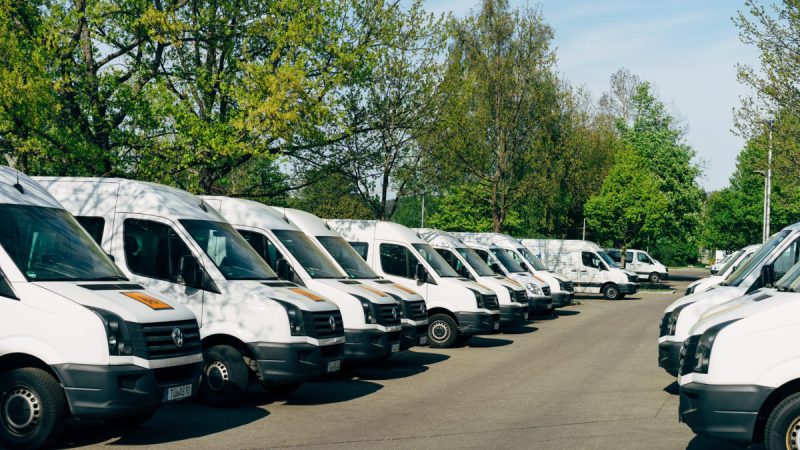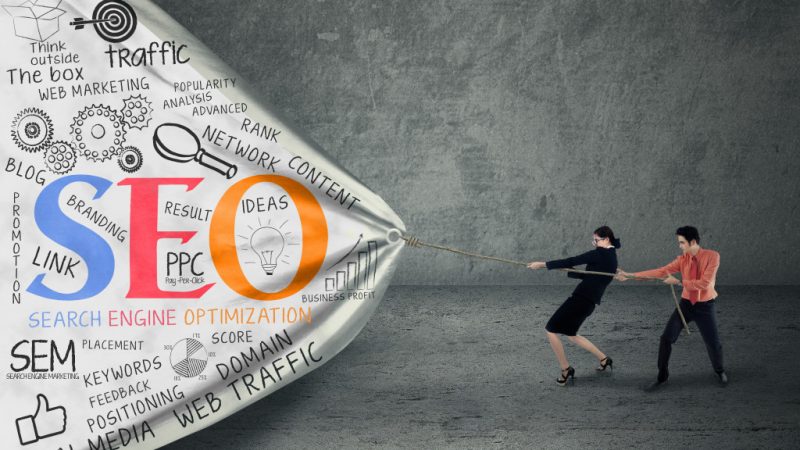The Most Common Plumbing Issues Homeowners Encounter
Plumbing issues are an inevitable part of homeownership, and they often strike at the most inconvenient times. From leaky faucets to burst pipes, these problems can wreak havoc on your home and cause significant headaches. Fortunately, there are solutions available to address these common plumbing woes. In this comprehensive guide, we’ll explore the most prevalent plumbing issues faced by homeowners and provide practical advice on how to tackle them. With the help of experienced plumbing companies, you can navigate these challenges and keep your home’s plumbing system running smoothly.
Plumbing problems not only disrupt daily routines but can also lead to costly repairs and property damage if left unaddressed. By understanding the most common plumbing issues and knowing how to address them effectively, homeowners can save time, money, and frustration in the long run. Whether you’re dealing with a minor leak or a major plumbing emergency, being prepared and proactive is key to maintaining a functional and efficient plumbing system in your home.
Leaky Faucets
Leaky faucets are not only annoying but also wasteful, leading to unnecessary water consumption and higher utility bills. The most common cause of a leaky faucet is worn-out washers or seals, which can deteriorate over time due to regular use. While fixing a leaky faucet may seem like a daunting task, it’s often a straightforward DIY project that can be accomplished with basic tools and materials. However, if you’re not comfortable tackling the repair yourself, don’t hesitate to call a local plumbing contractor for assistance.
In addition to causing financial strain, leaky faucets can also lead to water damage if left unaddressed. Over time, constant dripping can erode fixtures and lead to mold growth in damp areas. By addressing a leaky faucet promptly, homeowners can prevent costly repairs and preserve the integrity of their plumbing system. Additionally, fixing a leaky faucet is an environmentally friendly decision, as it helps conserve water and reduce overall consumption.
Clogged Drains
Clogged drains are another common plumbing issue that homeowners frequently encounter. Whether it’s a kitchen sink, bathroom drain, or shower, clogs can disrupt the flow of water and cause backups and unpleasant odors. The most common culprits behind clogged drains include grease, hair, soap scum, and foreign objects. While minor clogs can often be cleared using a plunger or a drain snake, persistent blockages may require professional intervention. Consider scheduling hydro jetting services to thoroughly clean your pipes and prevent future clogs from occurring.
In addition to causing inconvenience, clogged drains can also pose health risks and lead to unsanitary conditions if left untreated. Standing water and sewage backups can attract pests and bacteria, creating a breeding ground for disease. By maintaining clean and free-flowing drains, homeowners can ensure the health and safety of their families while also preventing costly plumbing emergencies. Regular maintenance and proper disposal practices are essential for preventing clogs and preserving the functionality of your plumbing system.
Running Toilet
A running toilet is not only annoying but can also waste a significant amount of water, leading to higher water bills. The most common cause of a running toilet is a faulty flapper or fill valve, which allows water to continuously flow into the toilet bowl. Fortunately, fixing a running toilet is typically a simple and inexpensive repair that can be done with basic tools and replacement parts. However, if you’re unsure of how to diagnose or fix the issue, it’s best to consult with local plumbers who can quickly identify the problem and provide a lasting solution.
Beyond the annoyance and financial burden of a running toilet, there are environmental implications as well. Every drop of water wasted from a running toilet contributes to overall water waste, putting unnecessary strain on local water resources and ecosystems. By promptly addressing a running toilet, homeowners not only save money on their utility bills but also contribute to water conservation efforts in their communities. Additionally, a running toilet can indicate other underlying issues with the plumbing system, such as leaks or faulty components, which may require professional attention to prevent further damage.
Low Water Pressure
Low water pressure can be frustrating, especially when trying to shower or wash dishes. Several factors can contribute to low water pressure, including mineral buildup in pipes, a faulty pressure regulator, or a municipal water supply issue. Improving water pressure may involve tasks such as cleaning aerators, checking for leaks, or adjusting the pressure regulator. While some homeowners may attempt to troubleshoot low water pressure on their own, it’s often advisable to seek the expertise of a plumber, particularly if the issue persists or if it’s affecting multiple fixtures in your home.
In addition to causing inconvenience, low water pressure can also indicate more significant plumbing issues that require professional attention. In some cases, low water pressure may be a symptom of a hidden leak or a problem with the municipal water supply, which can lead to costly repairs if left unchecked. By consulting with a qualified plumber, homeowners can identify the root cause of low water pressure and implement appropriate solutions to restore optimal water flow. Addressing low water pressure promptly not only improves daily comfort but also helps prevent potential water damage and plumbing emergencies in the future.
Burst Pipes
A burst pipe is every homeowner’s worst nightmare, causing extensive water damage and potential mold growth if not addressed promptly. Pipes can burst due to freezing temperatures, corrosion, or excessive water pressure. To prevent pipes from bursting, insulate exposed pipes in cold weather and monitor your water pressure regularly. If you encounter a burst pipe, immediately shut off the water supply to your home and contact a repiping service for emergency repairs. Prompt action is crucial to minimize damage and restore your home’s plumbing system to working order.
The consequences of a burst pipe extend beyond property damage and financial loss—they can also pose health risks to occupants. Standing water from a burst pipe can create ideal conditions for mold and mildew growth, which can exacerbate respiratory issues and allergies. Additionally, contaminated water from a burst pipe can introduce harmful bacteria and pathogens into the home, putting occupants at risk of waterborne illnesses. By addressing a burst pipe quickly and effectively, homeowners can mitigate these health hazards and protect the well-being of their families.
Water Heater Issues
A malfunctioning water heater can disrupt your daily routine and leave you without hot water when you need it most. Common water heater problems include sediment buildup, faulty heating elements, or a malfunctioning thermostat. Regular maintenance, such as flushing the tank and checking for leaks, can help prolong the life of your water heater and prevent issues from occurring. However, if you notice signs of trouble such as lukewarm water or strange noises coming from your water heater, it’s essential to contact water heater services for professional diagnosis and repair.
Beyond the inconvenience of cold showers, a malfunctioning water heater can also impact energy efficiency and increase utility bills. A water heater that is not operating at peak efficiency may require more energy to heat water, resulting in higher energy consumption and costs. By addressing water heater issues promptly and investing in regular maintenance, homeowners can improve energy efficiency and reduce their environmental footprint. Additionally, maintaining a properly functioning water heater ensures consistent access to hot water for bathing, cleaning, and other household tasks, enhancing overall comfort and convenience.
Sewer Line Problems
Sewer line blockages can cause sewage backups and foul odors, posing health risks and requiring immediate attention. Tree roots, grease buildup, or foreign objects can all contribute to sewer line blockages. If you suspect a sewer line issue, look for signs such as slow drains, gurgling noises, or sewage backups in your home. While some minor sewer line issues can be addressed with DIY methods, more severe blockages may require the expertise of a sewer line company equipped with specialized tools and equipment. Additionally, consider scheduling backflow testing and repairs to ensure the integrity of your home’s plumbing system and protect against contamination.
The consequences of sewer line problems extend beyond property damage and inconvenience—they can also pose serious health risks to occupants. Sewage backups can introduce harmful bacteria and pathogens into the home, increasing the risk of waterborne illnesses and infections. Additionally, sewage odors can be unpleasant and pervasive, affecting indoor air quality and creating an uncomfortable living environment. By addressing sewer line problems promptly and effectively, homeowners can safeguard their health and well-being while also protecting their property from costly damage and repairs.
Garbage Disposal Troubles
A malfunctioning garbage disposal can disrupt your kitchen routine and lead to unpleasant odors and backups. Avoid putting fibrous or starchy foods, bones, or non-food items down your garbage disposal, as these can cause jams and damage the unit. If your garbage disposal becomes jammed, try using a hex key or a garbage disposal wrench to manually rotate the blades and dislodge the obstruction. However, if the issue persists or if your garbage disposal is showing signs of wear and tear, it may be time to consider plumbing services for repairs or replacement.
In addition to causing inconvenience in the kitchen, a malfunctioning garbage disposal can also lead to plumbing issues and water damage if not addressed promptly. Food waste trapped in a jammed garbage disposal can create clogs in the drain line, leading to backups and overflows in the sink. Additionally, leaks or mechanical failures in the garbage disposal unit can result in water damage to cabinets, countertops, and flooring. By addressing garbage disposal troubles quickly and effectively, homeowners can prevent these plumbing emergencies and preserve the functionality of their kitchen plumbing system.
Sump Pump Failures
A failing sump pump can leave your basement vulnerable to flooding and water damage, particularly during heavy rainfall or snowmelt. Sump pump failures can occur due to power outages, mechanical issues, or improper installation. To maintain your sump pump, regularly test it to ensure it’s functioning correctly and clear any debris from the pit or discharge pipe. If you notice signs of sump pump failure, such as excessive cycling or unusual noises, contact a professional plumbing repair services to assess the situation and recommend appropriate repairs or replacements.
The consequences of a sump pump failure can extend far beyond property damage and financial loss—they can also impact the structural integrity of your home and pose health risks to occupants. Flooding in the basement can weaken foundations, compromise structural components, and promote mold and mildew growth. Additionally, standing water can attract pests and insects, creating unsanitary conditions and increasing the risk of contamination. By addressing sump pump failures promptly and effectively, homeowners can protect their investment and ensure the safety and comfort of their families.
Dripping Pipes
Dripping pipes may seem like a minor nuisance, but they can indicate underlying issues such as corrosion, loose fittings, or high water pressure. Ignoring dripping pipes can lead to water damage and mold growth, compromising the structural integrity of your home. If you encounter dripping pipes, try tightening fittings or replacing worn-out washers to stop the leak temporarily. However, if the dripping persists or if you notice signs of water damage, it’s crucial to contact a plumber for professional evaluation and repair. A qualified plumber can identify the root cause of the leak and implement lasting solutions to prevent further damage to your home.
Beyond the annoyance of the constant dripping sound, leaking pipes can lead to significant water waste and inflated utility bills. Every drop of water wasted from a dripping pipe contributes to overall water consumption, putting unnecessary strain on local water resources and ecosystems. By addressing dripping pipes promptly, homeowners not only save money on their water bills but also contribute to water conservation efforts in their communities. Additionally, leaking pipes can cause damage to walls, ceilings, and flooring, requiring costly repairs and restoration work. By addressing leaking pipes quickly and effectively, homeowners can minimize damage and preserve the integrity of their home’s plumbing system.
Conclusion
In conclusion, plumbing issues are a common occurrence for homeowners, but they don’t have to be overwhelming. By understanding the most common plumbing problems and knowing when to seek professional help, homeowners can effectively address issues as they arise and prevent costly damage to their homes. Whether it’s a leaky faucet, clogged drain, or burst pipe, plumbing companies are equipped to handle a wide range of plumbing issues and restore your home’s plumbing system to optimal condition. With proper maintenance and proactive measures, you can keep your home’s plumbing running smoothly and enjoy peace of mind knowing that you’re prepared to tackle any plumbing challenge that comes your way.





